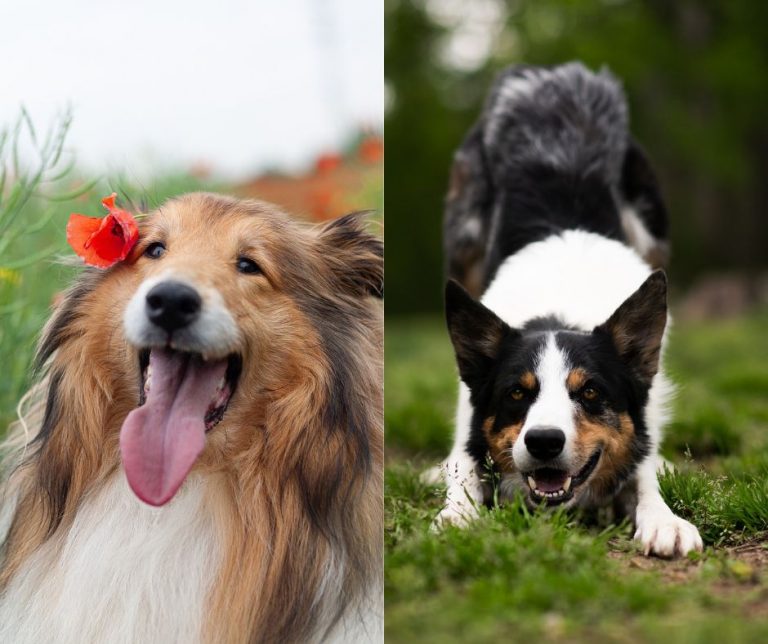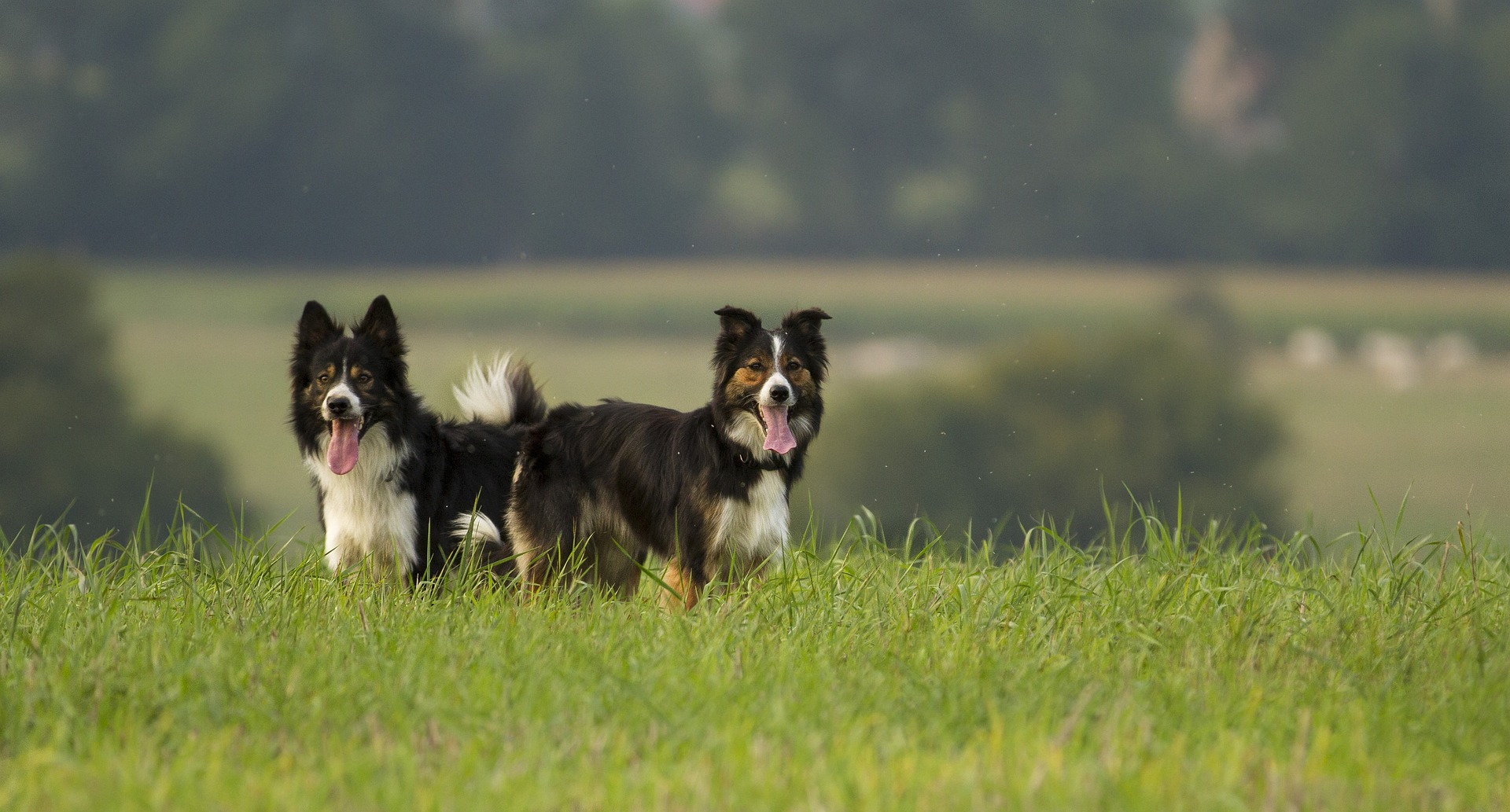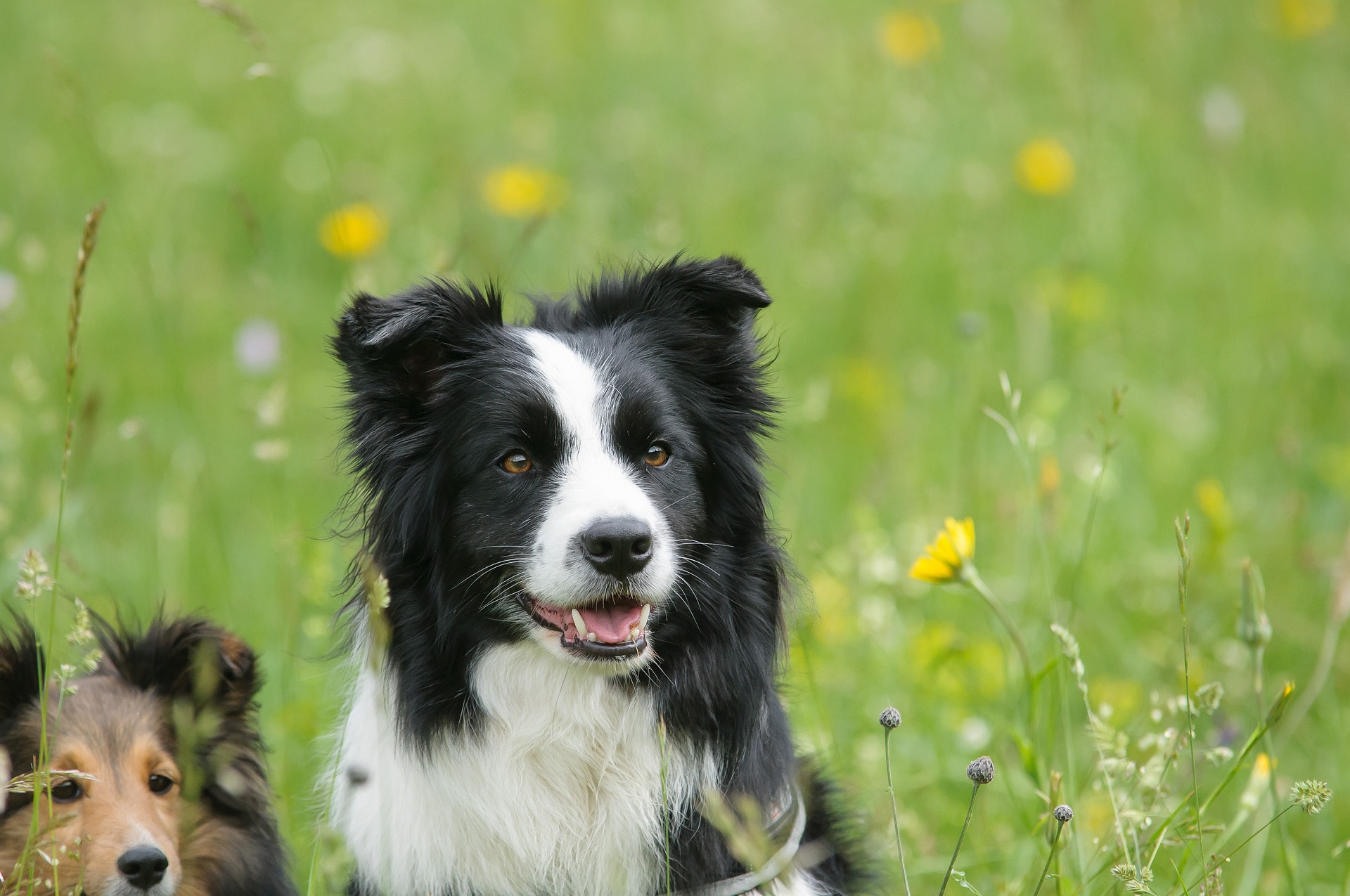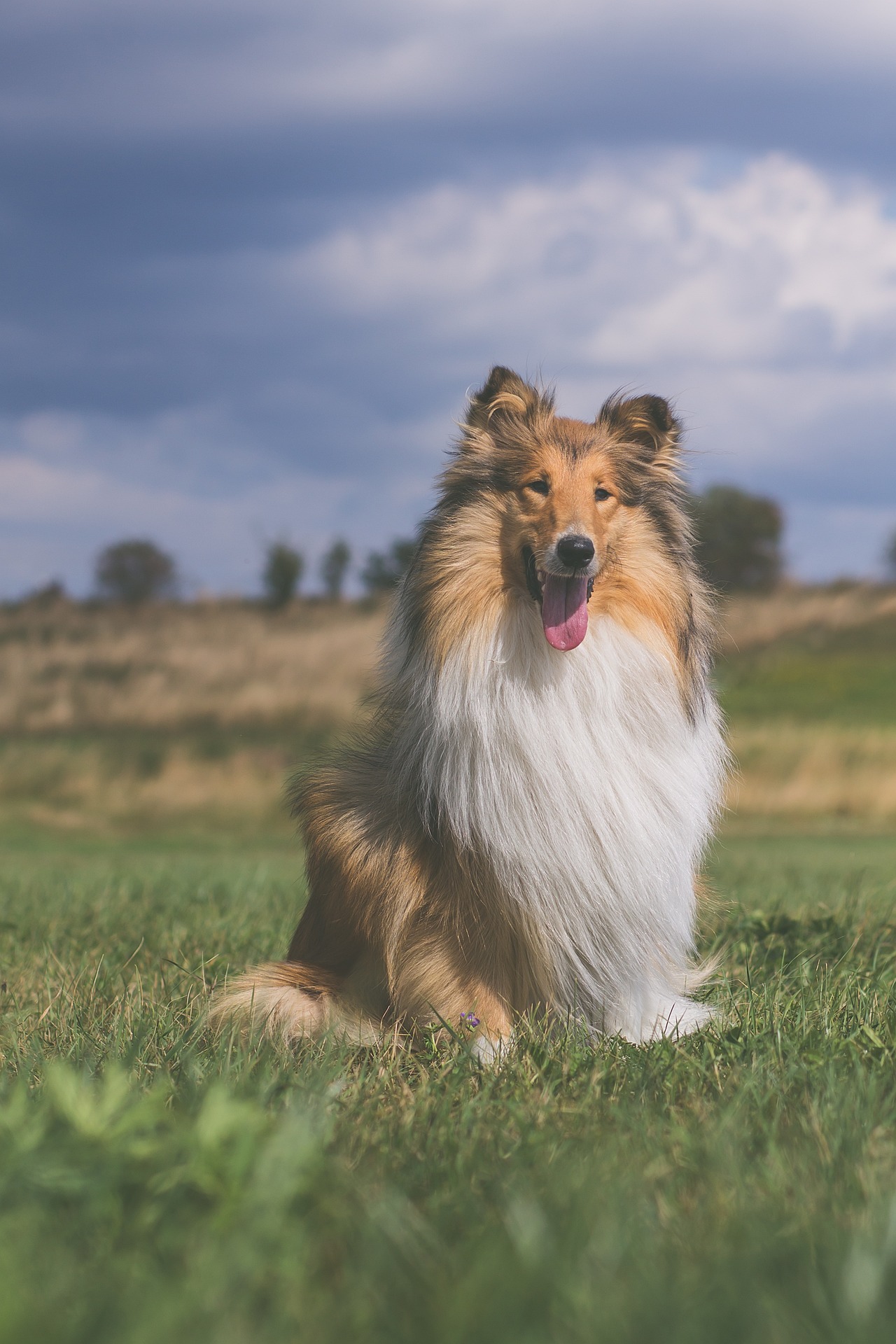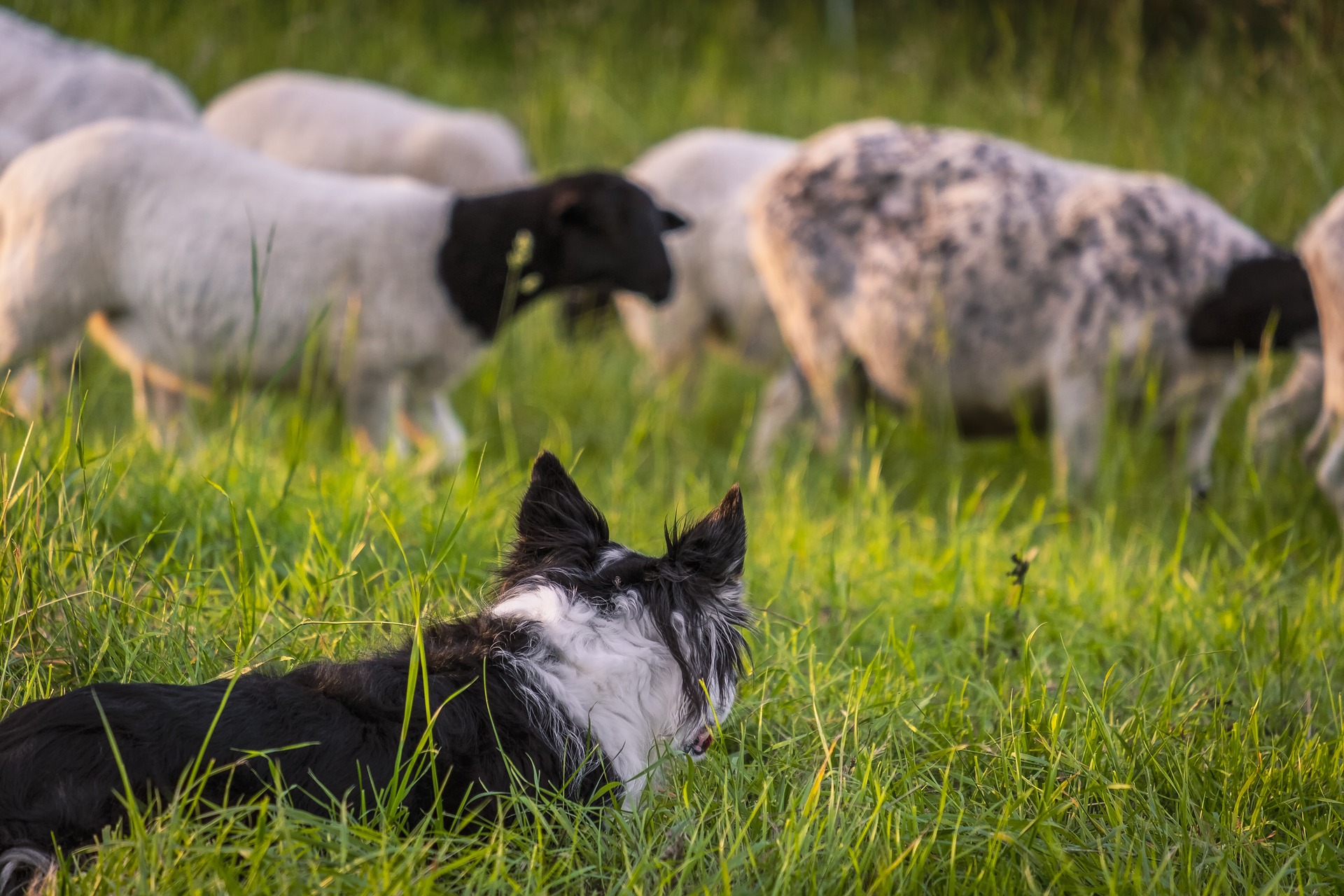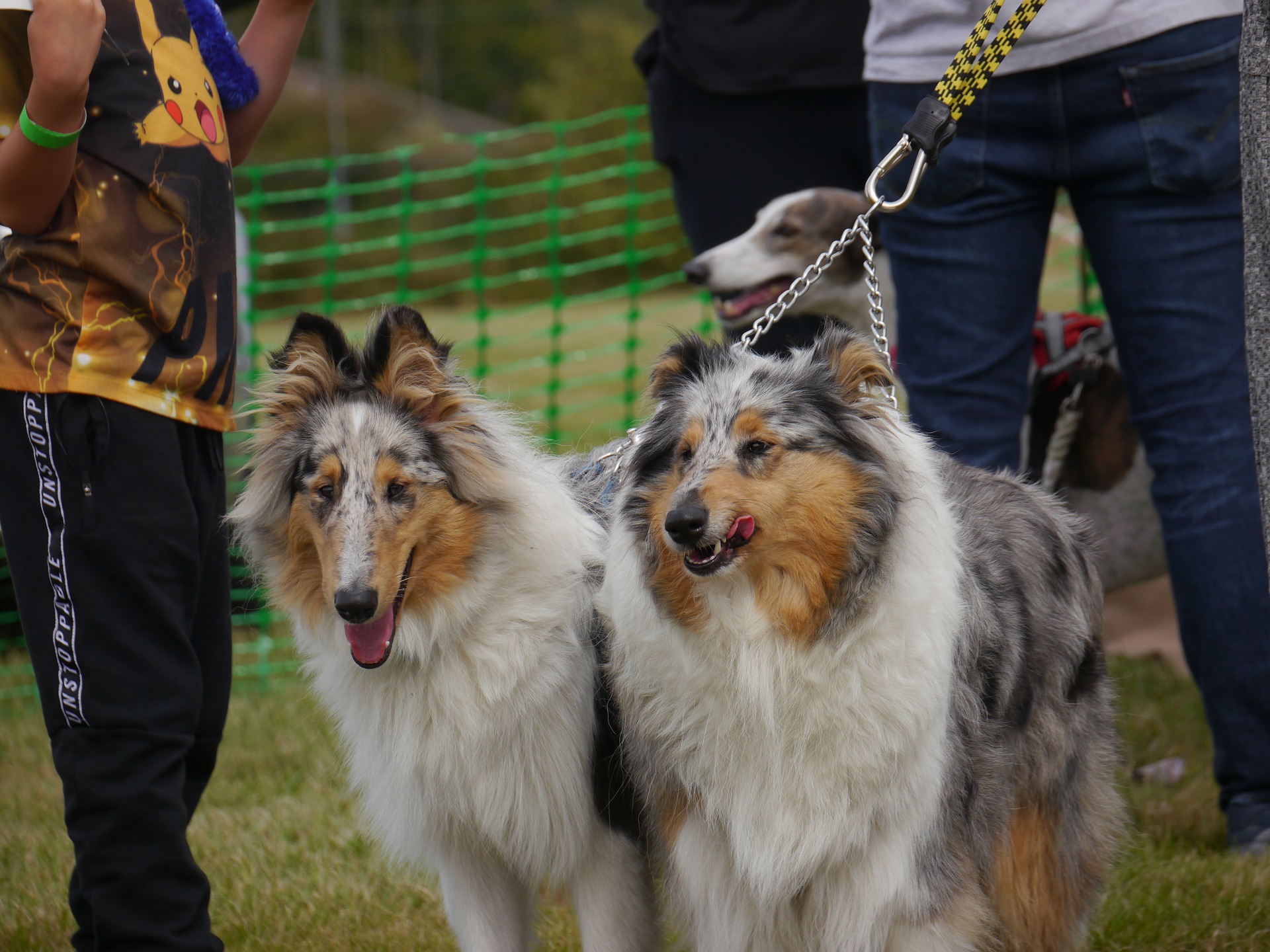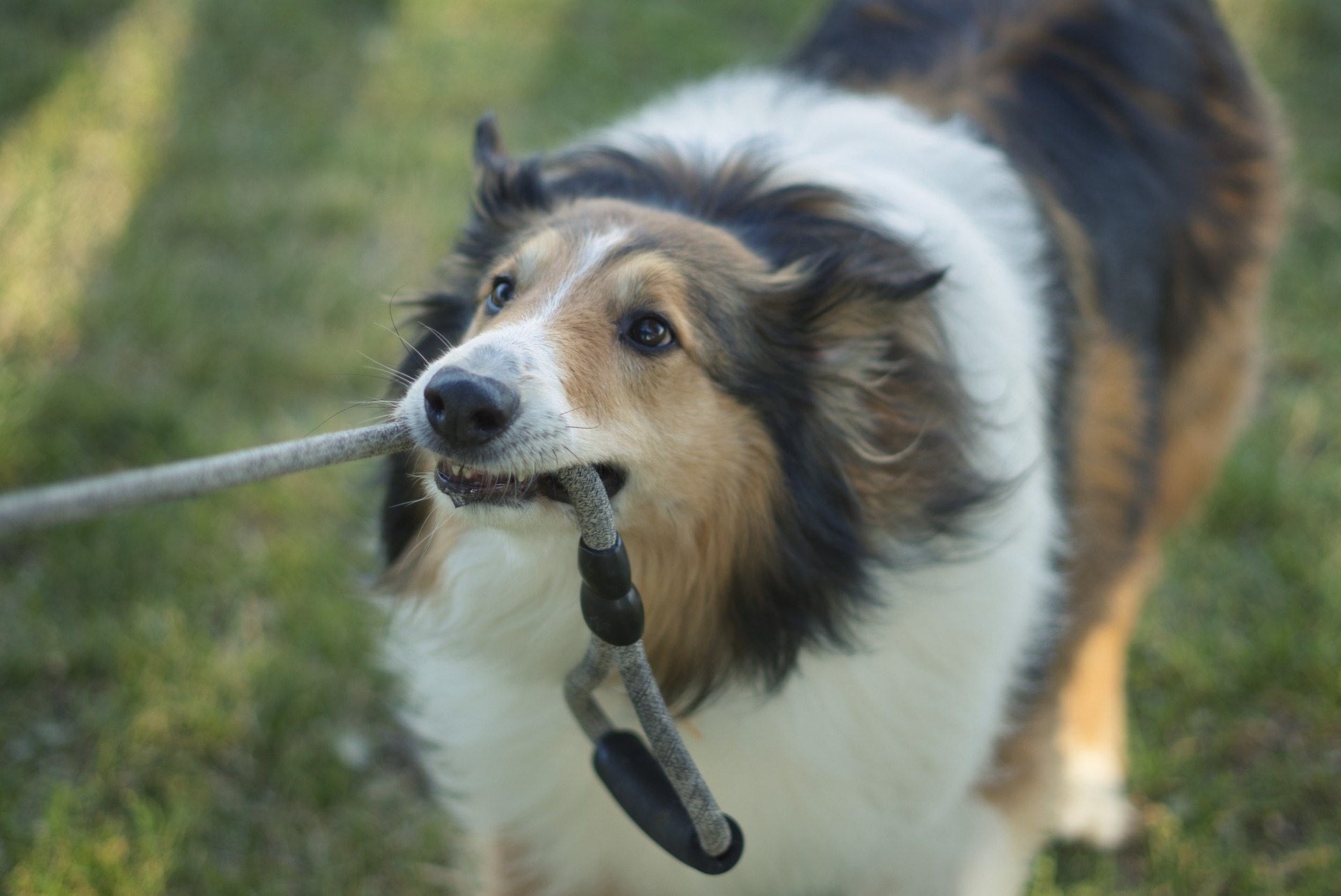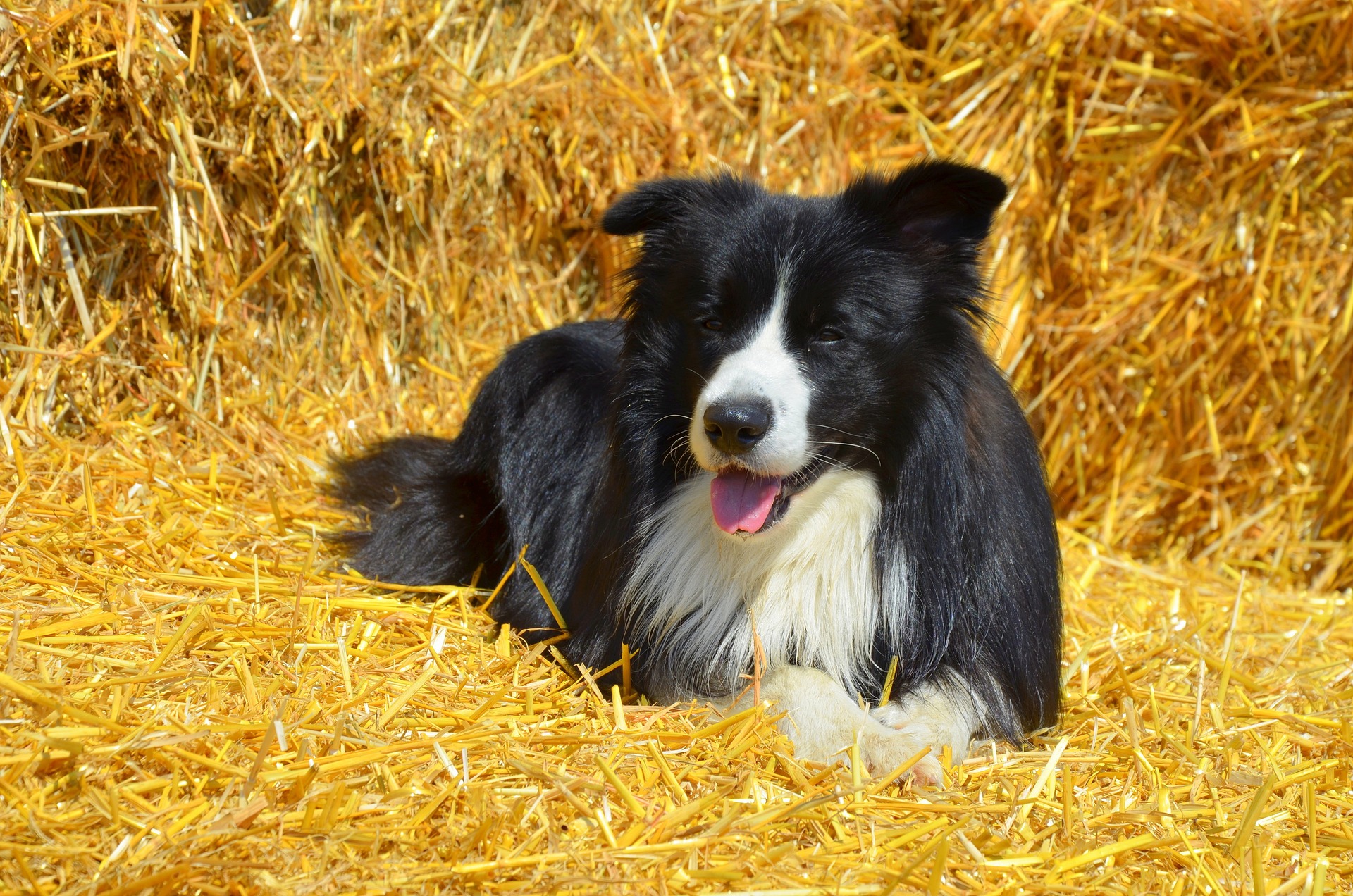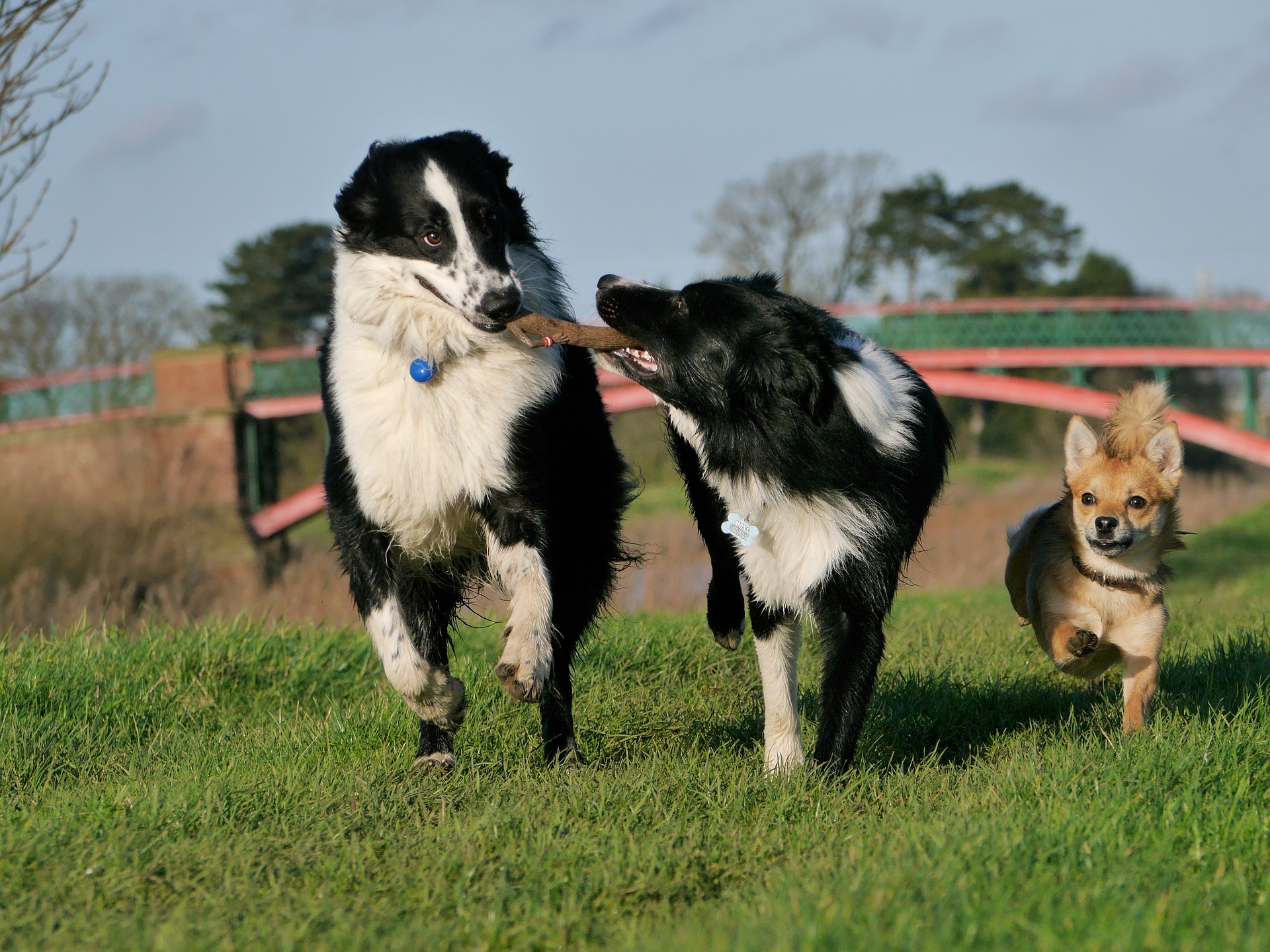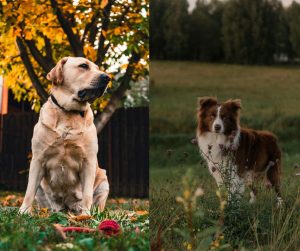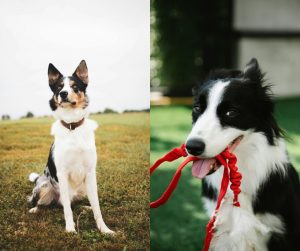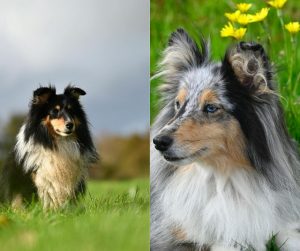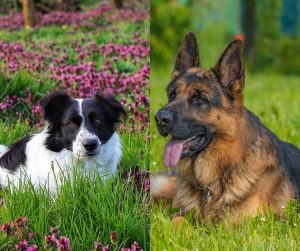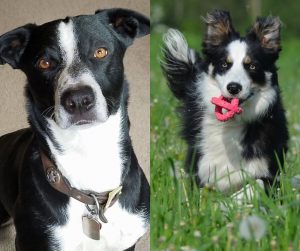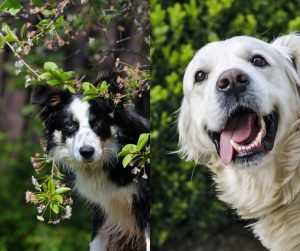When looking to invite a canine companion into your home, understanding the unique traits of different breeds is key to a harmonious match. The Rough Collie and the Border Collie, both heralding from the pastoral hillsides of Great Britain, showcase their unique blend of beauty, brains, and agility. While they share a common lineage as herding dogs, each breed carries distinct characteristics suited to various lifestyles and preferences.
The Rough Collie is often recognized for its lush, flowing coat and gentle demeanor, immortalized by the fictional Lassie. They make for an affectionate family pet, known for their loyalty and ease around children.
In contrast, the Border Collie is lauded as an intelligent workhorse, with an energetic spirit that thrives on mental and physical exercise. The two breeds share a readiness to learn, making them excellent candidates for training and companionship, but their exercise needs and social temperament set them apart.
That being said, let’s take a full look at the Rough Collie vs Border Collie dog breed comparison.
Key Takeaways
- Rough Collies are distinguished by their long coat and gentle, family-oriented nature
- Border Collies possess high energy levels and require rigorous mental and physical activity
- Choosing between the two breeds hinges on compatibility with a family’s lifestyle and activity level
Origins and History
When it comes to the lineage of the charming Rough Collie and the smart Border Collie, one would find their roots deeply embedded in the British Isles. Their stories are as much about companionship as they are about their respective roles throughout history.
Ancestry
Rough and Border Collies share a common ancestry that traces back to the herding dogs used by the Romans and Vikings in Britain. They were bred to be tough and reliable, able to withstand the harsh climates of Scotland and England.
As these breeds diverged, the Rough Collie emerged, particularly noted for being associated with Queen Victoria who fell in love with the breed during her visits to Scotland. This association significantly propelled the breed’s popularity among the nobility and general public.
In contrast, the Border Collie was honed to perfection around the border between Scotland and England. They were initially known as ‘Scotch Sheep Dogs’ and earned their name from their excellent herding abilities in the border country.
Historical Roles
Collies historically took center stage as shepherds’ aides, excelling in their herding roles with sheep and other livestock. Their intelligence and eagerness to please made them indispensable on the farms and hills of their native lands. As industrialization took hold, the value of these dogs in a pastoral role only grew.
The Rough Collie became well-known beyond herding, largely through the media. Remember “Lassie”? This famous canine character introduced the grace and loyalty of the Rough Collie to audiences around the world.
The Rough Collie and Border Collie are close relatives to the Shetland Sheepdog, Smooth Collie, Bearded Collie, and other herding dog breeds. For example, the American Kennel Club lists also Australian Shepherd, Australian Cattle Dog, and more in the herding group.
Meanwhile, the Border Collie remained a shepherd’s best friend, notable for their high intelligence and quick learning abilities which were key to managing flocks in the rugged terrains. Their recognition by the American Kennel Club came much later in history, with full recognition in 1995, emphasizing their steadfast role as working dogs rather than show dogs. Looking at the Border Collie history, we can see that this breed has began as a farm dog, only to evolve into an amazing family pet.
Physical Characteristics
When picking between a Rough Collie and a Border Collie, one will notice significant differences in their physical stature and coat. Here’s a close look at these charming breeds and what sets them apart from each other in terms of size, weight, and coat types.
Size and Weight
Rough Collie:
- Height: Usually stands 24 to 26 inches tall at the shoulder
- Weight: Typically weighs between 50 to 75 pounds
Border Collie:
- Height: Smaller in stature, with a height ranging from 18 to 22 inches
- Weight: Generally weighs between 26 and 44 pounds, showcasing a more refined build
Coat Varieties
Rough Collie:
- Coat Type: Known for their luxurious double coat that’s straight and long, Rough Collies are famous for the fluffy “manes” around their neck
- Coat Colors: They flaunt a variety of colors, including sable and white, blue merle, and tricolor
- Grooming Needs: Demanding regular grooming to prevent tangles and manage shedding
Border Collie:
- Coat Type: Their coat is shorter and sleeker but can come in two types, smooth or rough, with the rough variety having a medium to long length
- Coat Colors: Border Collies sport a diverse color range, including black and white, red and white, and merle
- Grooming Needs: While they do shed, their coat requires less maintenance than that of a Rough Collie, easing the grooming process
Both breeds need their grooming sessions to be a soothing experience, as they respond well to gentle handling.
While physical characteristics such as coat type and size are important, the choice also depends on how well potential owners can accommodate their grooming and space needs.
Temperament and Personality
Understanding the temperament and personality of Rough and Border Collies is key in determining if they fit into your family and lifestyle. Both breeds exhibit a range of behaviors from energetic to affectionate, but their distinct personalities need careful consideration.
Behavioral Traits
Rough Collies: Known for their gentle and friendly temperament, Rough Collies are often described as calm and docile family pets. They are highly intelligent and respond well to dog training, making them well-suited for various roles such as therapy work and companionship. They can, however, be a bit reserved with strangers, which is mitigated by early socialization.
- Family Compatibility:
- Friendly: Yes, with proper socialization
- Playful: Readily engage in play, especially gentle with children
- Social: They enjoy being part of the family’s activities
Border Collies: These dogs have an energetic and driven personality, often seen as work-oriented and highly intelligent. Their desire to work makes them exceptional in dog sports and herding.
Border Collies may be too intense for very young children or more sedentary families, as they require significant mental and physical stimulation.
- Family Compatibility:
- Energetic: Need active family to match their high energy levels
- Intelligent: Quick learners, crave mental stimulation
- Socialized: Must be well-socialized to manage their herding breed instincts
Health and Care
When considering the health and care of Rough Collies and Border Collies, one should be aware of their specific needs. They both have distinct health concerns and exercise requirements that ensure a healthy and vibrant life.
Common Health Issues
Rough Collies and Border Collies share some hereditary health conditions. One of the most prominent concerns is Collie Eye Anomaly (CEA), which can affect their vision.
Both breeds can be prone to hip dysplasia, a malformation of the hip joint that may cause arthritis or pain.
In addition, epilepsy is noted in these breeds, as well as Progressive Retinal Atrophy (PRA), which can lead to blindness.
They also can have a drug sensitivity linked to the MDR1 mutation, affecting how they process certain medications.
- Rough Collie Common Health Issues
- Collie Eye Anomaly
- Hip Dysplasia
- Progressive Retinal Atrophy
- Drug Sensitivity (MDR1 mutation)
- Border Collie Common Health Issues
- Collie Eye Anomaly
- Hip Dysplasia
- Epilepsy
- Drug Sensitivity (MDR1 mutation)
Exercise and Activity Needs
A defining trait for both breeds is their high energy level, but they differ slightly in their needs.
Rough Collies might be content with more moderate exercise; they typically require regular walks coupled with occasional play sessions to remain happy and healthy.
Grooming for Rough Collies is more intensive due to their longer coats. They need regular brushing to keep their fur tangle-free, especially during shedding season.
Border Collies, on the other hand, thrive on high-intensity activities. They are agile and require significant exercise to satisfy their work-driven instincts.
Without adequate activity, they may develop behavioral issues.
Their coat is shorter, which makes grooming a somewhat easier task than with Rough Collies, but they still benefit from regular brushing to manage shedding.
- Rough Collie Exercise and Activity Needs
- Moderate exercise (daily walks and playtime)
- Extensive grooming, particularly during shedding season
- Border Collie Exercise and Activity Needs
- High-intensity exercise (ample time outdoors, room to play, agility activities)
- Regular grooming, less intensive than the Rough Collie
Training and Intelligence
When deciding between the Rough Collie and the Border Collie, their training needs and intelligence are key factors.
Trainability
Rough Collies are known for their gentle demeanor and willingness to please, which usually makes obedience training a smooth process.
They are smart dogs and respond well to positive reinforcement. However, their sensitivity means harsh dog training methods are a no-go; they thrive on kindness and encouragement.
In contrast, Border Collies are often seen as the Olympians of the dog world when it comes to intelligence and trainability.
They’re incredibly smart and have an eagerness to engage in training sessions.
Their quick learning capabilities extend to a variety of tasks, from games like flyball and fetching to competitions.
Border Collies can pick up commands with ease, often requiring fewer repetitions than other breeds to learn new cues.
Mental Stimulation Needs
Both the Rough Collie and the Border Collie have high mental stimulation needs due to their intelligence.
If these needs aren’t met, they might come up with their own “jobs,” which can include undesirable behaviors like excessive barking or digging.
- Rough Collies often like puzzles and games, as well as interactive play sessions with their owners. They appreciate consistent mental challenges but also enjoy periods of relaxed companionship
- Border Collies need a considerable amount of mental engagementTheir herding instinct can be channeled into activities, but it’s important they’re kept mentally occupied with tasks like advanced obedience, herding trials, or dog sports.
Without sufficient mental stimulation, a Border Collie is likely to engage in hyper behaviors and could become stressed.
Herding Instincts
When choosing between a Rough Collie and a Border Collie, their herding instincts are a central characteristic to consider. These breeds have honed their abilities for hundreds of years, showing both similarities and distinctions in their herding behavior and performance in sports and work-related activities.
Herding Behavior
Both Rough Collies and Border Collies share a rich heritage as herding dogs, a trait deeply ingrained in their behavior.
Due to their strong herding instincts, they have an innate ability to manage and move livestock, showing precision and a level of intuitiveness that’s impressive.
Specifically, Border Collies are known for their intense gaze and crouching stance, which they use to direct animals with subtlety and intelligence.
- Rough Collies, while also skilled herders, tend to approach the task with less intensity than their Border cousins. Their style is more upright and they often display a gentler herding technique
Sports and Work
In the realm of canine activities, both breeds flourish in sports that simulate herding tasks:
- Agility Competitions: Border Collies especially stand out here for their agility and speedTheir athletic build and responsive nature make them adept at navigating obstacle courses with efficiency.
- Working Dog Roles: While both breeds excel, the Border Collie is often seen as the more work-oriented, with a driving passion for the job at hand
These dogs don’t simply participate—they thrive, often taking top places in agility and work events. Their intelligence and eagerness to please also make training for these activities a bonding experience for both the dog and their trainer.
Lifestyle Compatibility
Choosing between a Rough Collie vs Border Collie is more than just a preference in looks—it’s about finding a companion that meshes well with your day-to-day life. They both bring unique energy and needs to the table that make them suitable for different living environments and owner experiences.
Living Environments
Rough Collies and Border Collies both thrive in environments where they can receive plenty of love and attention. However, their space and exercise needs differ:
- Rough Collie dogs: They adapt well to various living situations, including apartments, as long as they get their daily dose of exercise
These breeds generally have moderate energy levels but enjoy a good play session in a fenced yard or a park. Families with a bit of living space will find they’re a good match.
- Border Collie dogs: Known for their high energy, Border Collies do best with ample space to run and play
They’re athletic dogs that require significant daily exercise, making them ideal for homes with large yards or access to open spaces. An owner who enjoys long walks or runs will have a happy companion in a Border Collie.
Owner Experience Level
The owner’s experience with dogs can greatly influence the choice between these two breeds:
- Rough Collie dogs: They’re generally forgiving with first-time owners and respond well to gentle training
Those new to dog ownership will appreciate their willingness to learn and to please. They also require regular grooming, and those willing to learn proper coat care will find it a rewarding experience.
- Border Collie dogs: They often need an experienced owner who understands the intricacies of dog training and socialization
With their high energy and intelligence, Border Collies need consistent mental and physical stimulation.
They are quick learners and excel in various dog sports, so experienced owners looking to be active with their dogs will find a perfect partner in Border Collies.
Adoption and Ownership
When considering adopting a Rough or Border Collie, it’s important to understand the financial commitment and to choose a breeder carefully. They’re more than just pets; they become a part of the family.
Cost Considerations
Price Range: The cost to adopt a Collie pup can vary widely.
For a purebred Rough or Border Collie, one can expect to typically pay between $600 to $1,200. However, prices can soar upwards of $2,500 for dogs of exceptional lineage or from highly reputable breeders.
- Rough Collies often come in a variety of colors, with the tricolor being quite sought after, which might affect their price
- Border Collies are more commonly found in black and white and might be slightly less expensive than tricolors or other unique colorations
- Keep in mind costs for initial veterinary care (vaccinations, spaying/neutering, microchipping), food, supplies, and potential health issues specific to the breed, such as Trapped Neutrophil Syndrome in Border Collies
Finding a Breeder
- Look for breeders who specialize in either the English Collie (often synonymous with Rough Collie) or the Scotch Sheep Dog (Border Collie). Ensure they are knowledgeable about the respective breed’s origins and characteristics
- Responsible breeders will screen for health conditions and temperament, provide a clean, loving environment, and show evidence of affectionate treatment of their dogs
- It’s critical to visit the breeder, meet the pup’s parents, and observe the conditions in which the pups are raised
- This helps ensure you’re bringing home a healthy, well-socialized collie breed member

